1. Are polyethylene diesel tanks suitable for storing diesel?
Coerco diesel storage tanks are made using diesel-compatible and Australian made Alkatuff polyethylene.
Alkatuff polyethylene passed tensile testing post diesel exposure. Tensile testing, otherwise called “tension testing”, involves applying a pulling force to an object to measure the object’s response, which helps determine the strength of the material.
Coerco poly diesel tanks, being made of Alkatuff, are impervious to diesel and don’t buckle in the presence of stress. Moreover, rust, which steel tanks are vulnerable to, is not an issue with poly diesel fuel tanks.
Seams, which steel tanks have, are vulnerable areas that predispose these tanks to damage and compromise diesel quality. In contrast, poly diesel storage tanks are moulded through a process called rotational moulding which produces a seamless (jointless) design, making poly diesel tanks more resistant to damage such as cracks, and thus, preventing diesel-leakage.
2. Are poly diesel tanks at risk of algae contamination?
Algae needs water, sunlight and heat to thrive and multiply. To prevent these algae-friendly conditions from taking place, your diesel fuel tank must be thick and dark enough to ward off both heat and sunlight.
Coerco’s poly diesel storage and transport tanks are sufficiently thick and have just the right shade of colour required to prevent heat and sunlight from penetrating the walls, stopping algae contamination before it happens.
Another advantage of a poly diesel tank in the prevention of algal blooms is its seamless quality. Leaks from tiny cracks in the seams of metal/steel tanks can allow water to gain access inside - inviting algae. Even a quarter of an inch of water at the bottom of a substandard diesel tank is enough breeding ground for algae to proliferate.
3. Can I store diesel fuel outside for long periods of time?
In general, diesel can still be usable at 6 to 12 months of storage provided that measures have been implemented to ensure its good quality.
It should be noted that water/moisture is a common enemy of both diesel and metal tanks. Indeed, algae is not the only consequence of water. Rust can develop from water, too, which can build up inside a metal tank, compromising diesel quality and potentially causing damage to your engine.
Water may also occur because of condensation when water vapor from warm air encounters a colder surface. Metal tanks may be subject to this phenomenon especially when it’s scorching hot outside.
To reiterate, even though diesel can be stored for a fairly long period of time, it does need to be stored properly.
Quality diesel fuel storage tanks made of polyethylene directly address the above issues, making them ideal for farm use. Poly is 100% resistant to rust/corrosion and isn't prone to condensation because it doesn't attract moisture from the air.
Superior poly diesel storage and transport solutions give you the best chance of having a viable diesel after months of storage.
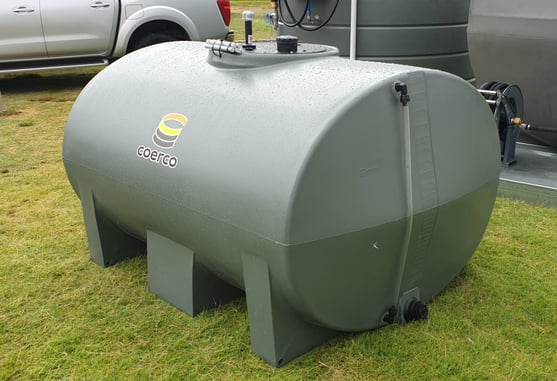
Coerco's free standing diesel transport tank is capable of withstanding weather. Rain or shine.
4. Can I store petrol in a poly diesel tank?
We do not advise to store petrol in our poly diesel tank. As per the globally harmonised system for the classification and labelling of chemicals (GHS), petrol has a lower flash point and initial boiling point (<23°C Celsius and ≤ 35°C respectively) than diesel, which has a flash point of > 60°C and a boiling point of ≤ 93°C. This means that petrol will ignite faster than diesel.
The storage of petrol requires an anti-static especially with prolonged exposure to the sun. Although Coerco’s poly diesel tanks have an anti-static fill line, this is appropriate for storing and transporting diesel only, not petrol.
5. Where do I place a poly diesel storage tank?
Ideally, diesel fuel storage tanks for farm use needs to be stored away from houses. If you are using a steel/metal tank, your diesel will face the risk of evaporation through radiant heat, but this isn’t an issue with poly diesel tanks.
For your peace of mind, you can install your storage diesel tank underneath the shade for added protection.
6. What kind of base is required for a poly diesel storage tank?
Your diesel storage tank must be placed on a uniformly stable, firm, and flat base to avoid possible failure and tank fatigue. Additionally, a secondary containment bund may be necessary to prevent diesel from leaking into the ground and contaminating the soil or any water source.
Requirements for the bund design are outlined here:
The New Way to Bulk up On Diesel and Save.
Note: Coerco poly diesel storage tanks only comply with Australian Standards AS1940:2017 once you’ve installed them inside an approved bunds (Bunds is not included with tank). Contact your bulk fuel supplier for approval prior to ordering bulk fuel.
7. Are there special rules for transporting diesel I should know about?
No. Diesel is not classified as a dangerous good for transport purposes according to Australian Dangerous Goods Code 7th edition (ADG7). However, diesel is classified as a dangerous good for storage purposes and when it’s transported together with other dangerous goods.
8. Do I need to display signs when transporting diesel?
Because diesel is not considered a dangerous good when being transported, no placarding is necessary on a diesel portable tank or a tank vehicle carrying diesel.
9. Do I need a dangerous goods driver's licence when I transport diesel?
In conjunction with the answer stated above, no you don’t need a dangerous goods driver’s licence when transporting diesel because diesel is not considered a dangerous good when being transported.
10. I've been using a different storage for my diesel for a long time now, why should I switch to Coerco poly diesel tanks?
Coerco’s poly diesel storage tanks comply with all necessary standards. Our diesel storage tanks conform to Australian Standards AS1940:2017 while our trailed diesel transport equipment conforms to Australian Design Rules (ADRs).
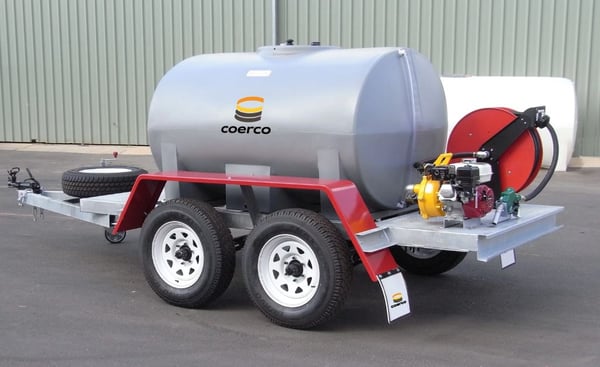 Coerco's trailed diesel transport equipment.
Coerco's trailed diesel transport equipment.
Coerco diesel tanks are made specially to maintain the integrity of your diesel fuel by protecting it from the most common causes of damage. Only diesel-compatible and quality high-grade polyethylene is being used during manufacturing process of Coerco's seamless, roto-moulded diesel fuel tanks.
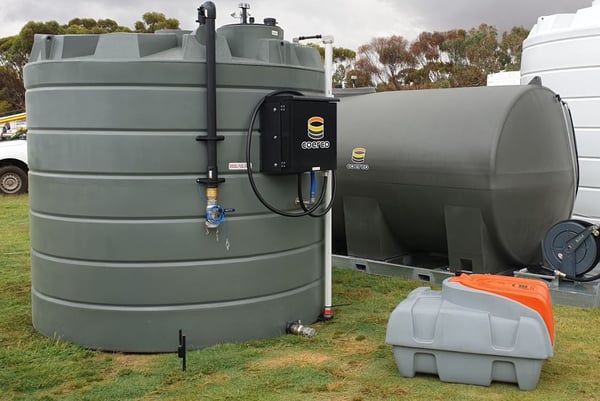 Diesel storage tank, sump based diesel transport tank, and self-contained diesel transport tank by Coerco.
Diesel storage tank, sump based diesel transport tank, and self-contained diesel transport tank by Coerco.
Make it possible to transport diesel efficiently during your field operations with reliable, robust and low-maintenance Coerco diesel tanks. We all know time is gold with farming. Anything that minimises time and effort while you do the most important work around your farm adds up and makes you more efficient while minimising downtimes.
Any questions or clarifications? Don’t hesitate to Contact us today!
This article is meant to provide helpful information on the topic discussed. It is not meant to replace recommendations made by a qualified consultant.



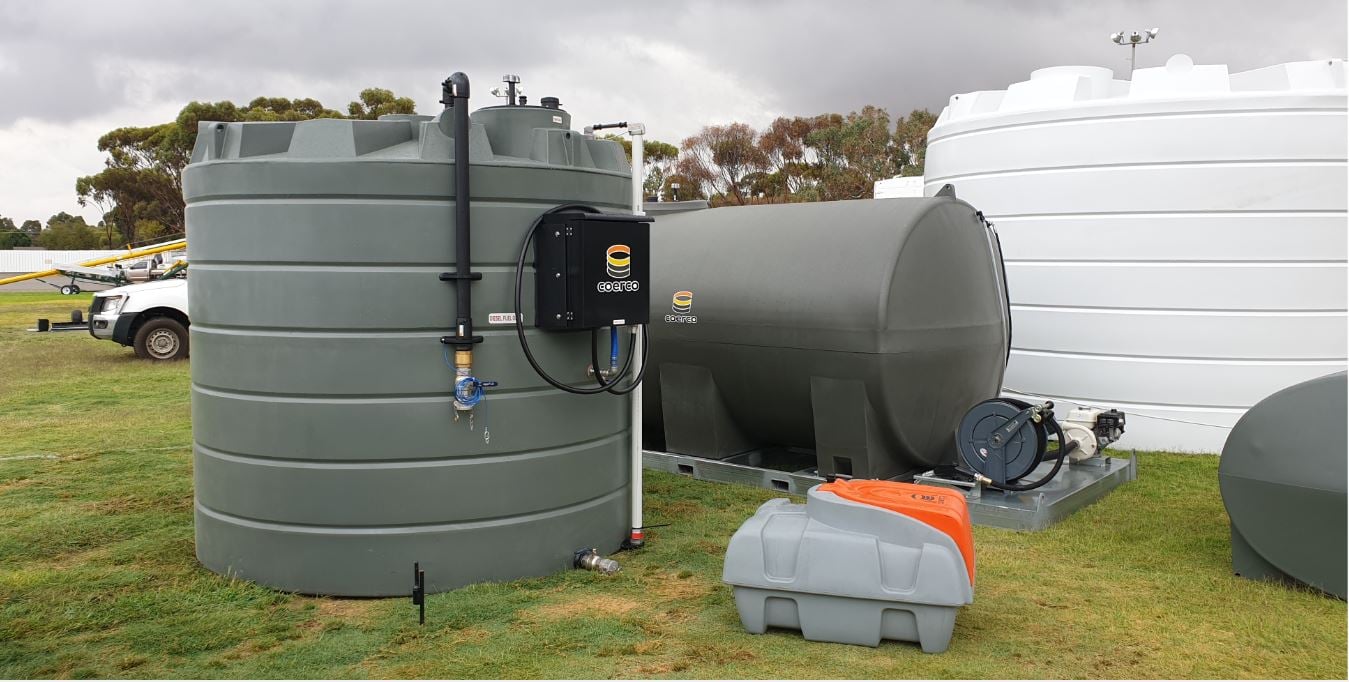

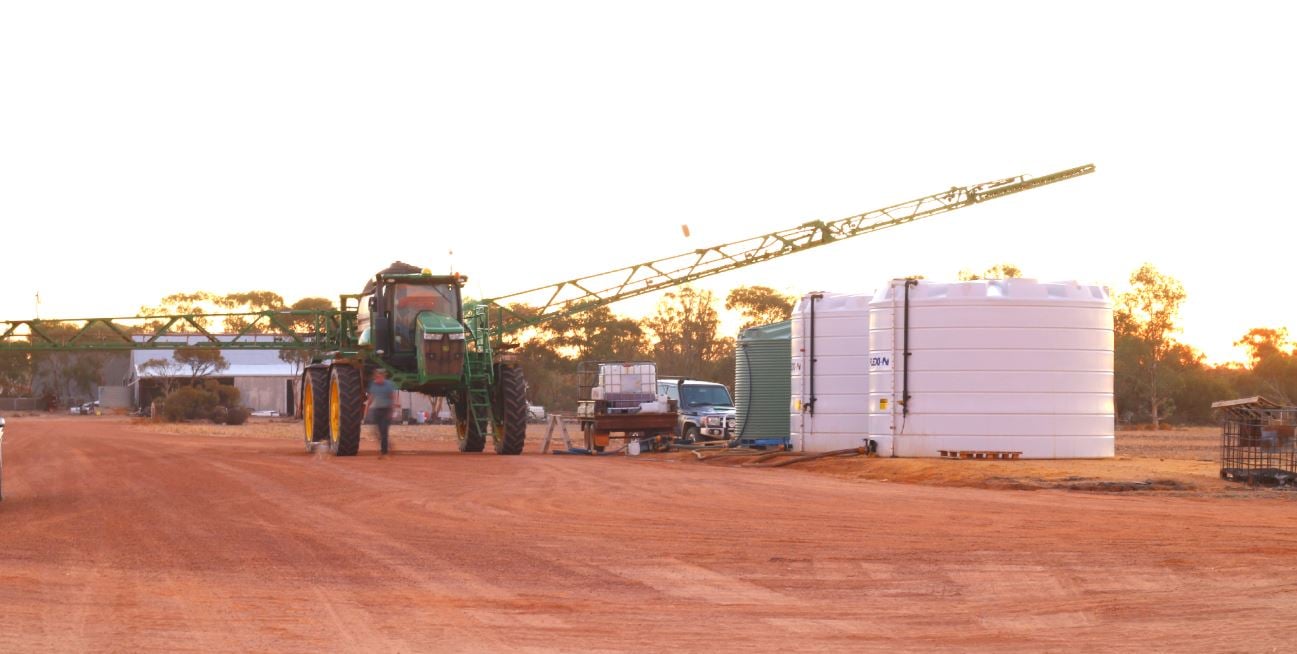
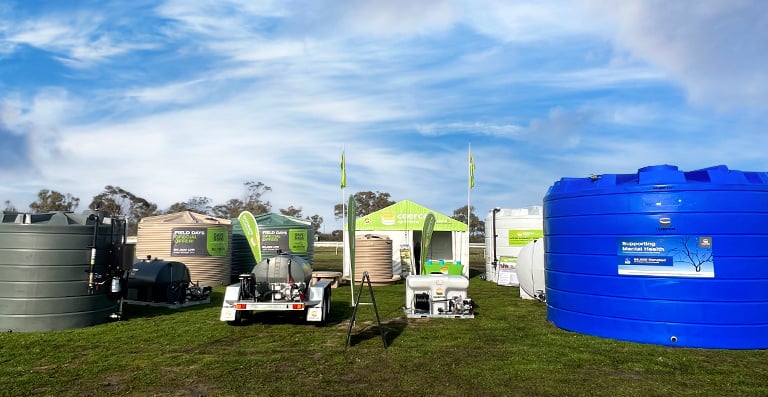
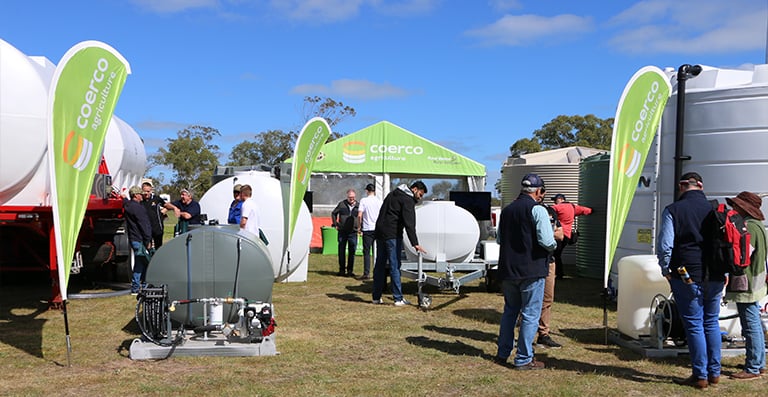
What do you think about this post?
Comments